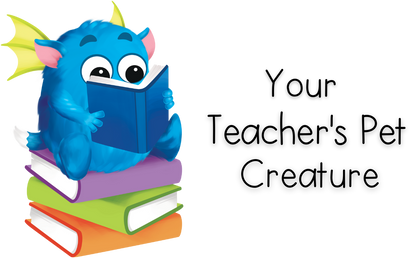Your Cart is Empty
Learning Topics
Best Sellers

Why Social Skills are Key to Improved Learning
by Jonathon Denholm February 17, 2022 3 min read
What’s the Correlation?
It’s no secret that there is a correlation between social skills and learning. When students struggle with these foundational skills, they also tend to have trouble with the acquisition of knowledge. As educators, it’s our job to help students overcome their weaknesses in these areas so that they have the best opportunities to thrive both inside and outside of the classroom.
Where to Start?
Social skills include communication skills, conflict resolution, nonverbal communication, emotional intelligence, active listening, understanding of personal boundaries, and many others that don’t come naturally to all students. In fact, from what I have observed, most students need to be explicitly taught these skills. So, where do we even begin?
Foundational Skills
Teaching social skills doesn’t need to be intimidating or inherently difficult. The most important thing when it comes to social skills is making sure that expectations are clear from the start. Without clear expectations, even the students who are the most adept at using social skills will struggle. One of the most foundational of these skills isself-awareness, which is essentially someone’s awareness of themself and their actions. If a student’s awareness improves, it becomes so much easier for them to pick up other social skills. This has a snowball effect on their development in every other area. It becomes easier for these students to observe their more socially adept peers, pick up on how they are behaving, and adjust their own actions accordingly. Once students have a better handle on this, more interactive social skills fall into place so much more easily.
Helping Students Interact with Other
To help students learn to communicate with peers and adults, we can provide dedicated time for them to practice in a low stakes environment. Examples of this might be games or activities that students can play with others that require them to express themselves, explain what they are doing, or articulate different pieces of information.
Social skills training doesn’t have to be intensive, exclusive work with the teacher. A lot of the time, students learn best from one another. These games and social skills activities also serve to teach students the importance of respecting personal space. In these scenarios, the teacher can play a neutral role and give the students necessary cues and sentence stems for expressing their feelings and needs to one another. Putting students in different social situations in low-stress environments tends to be exactly what they need to practice and develop those skills.
Highlighting the Importance of Social Skills for Students
Researchshows that the development of social skills and social interaction are vital to students’ success both inside and outside of school settings. The importance of social skills outside the classroom cannot be overstated, especially since students’ future success in the workforce and relationships depends on it. The effect of social skills on academic performance is also critical to student success, especially sincelearning is such a social activity. As we teach social skills, as with anything, students should be given the opportunity to put what they are learning into practice.
Opportunities for Real-World Application
At this point, it is common knowledge that students must have the chance to practice things several times and in several different ways. This approach to teaching helps students to learn and retain information so much more effectively. This is no different when we work to teach our students social skills. Students should have opportunities to practice these skills with peers, with the teacher, and with other adults. They should be consistently reminded of what proper personal boundaries, nonverbal communication, and social interaction looks like in different scenarios. Students should be rewarded, at least with praise and encouragement, when they exhibit positive behaviors. Finally, students must be given the chance to reflect on their behavior at regular intervals. Of course, these reflections will look different for students at various ages and developmental stages.
Resources to Support Development of these Skills
Here at Your Teacher’s Pet Creature, we have some resources that are ready-made for implementation in the classroom. If you’re ready to take the plunge and face social skills deficits head on, considerthis mega bundle. It’s specifically designed with a comprehensive set of posters, resources, and activities to support you and your students as you tackle social skills. We know that positive reinforcement is such a powerful tool when it comes to encouraging desired behaviors.This sticker pack might be exactly what your students need to improve their social skills, and by default, their academic performance in the classroom.


